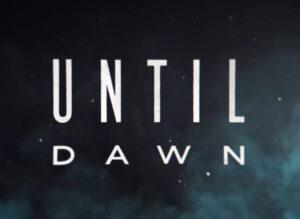
In September 2025, Paris Jackson stunned the entertainment world by declaring that she had “zero per cent involvement” in Michael, the long-anticipated biopic about her father. She went further, accusing the production of being “sugar-coated,” riddled with inaccuracies, and peddling “full-blown lies.” Her blunt rejection came at a time when Lionsgate and the Michael Jackson estate were navigating delays, reshoots, and legal entanglements that had already pushed the film’s release into April 2026.
Paris’s intervention changed the narrative. No longer was Michael simply another big-budget music biopic; it became a flashpoint for questions about legacy, authenticity, and the ethics of storytelling. When the pop star’s daughter insists she was ignored, misrepresented, and excluded, audiences must reckon with the possibility that the film’s official version of history may be more myth than memory.
A Daughter’s Boundary
Paris Jackson has never shied away from sharing personal reflections on her upbringing, but her criticism of Michael was unusually forceful. She acknowledged reading an early script draft and offering notes, only to see them disregarded. What rankled her most was hearing actor Colman Domingo claim publicly that she had been supportive and helpful during production. Paris immediately corrected the record, saying she had only met Domingo twice and briefly.
Her rejection was not just a refusal to endorse the film; it was a rejection of narrative control being claimed in her name. To her, Michael is not a portrait of truth but a product shaped to appease fandom and protect profits. She summed up her stance simply: “I just prefer honesty over sales and monetary gain. Leave me out of it.”
A Film in Flux
Michael was meant to be a definitive portrait of the “King of Pop.” Directed by Antoine Fuqua and starring Jackson’s nephew Jaafar, it promised to capture the artist’s music, career, and cultural impact. Yet the project has been dogged by turmoil:
-
Originally targeted for 2025, the release was postponed to April 24, 2026.
-
A clause tied to the Chandler family, the first accusers in 1993, forced major rewrites and reshoots of the third act.
-
Insiders reported roughly three additional weeks of filming in mid-2025.
-
Lionsgate has not ruled out splitting the film into two parts, citing the story’s scope.
These changes underline the tension between the estate’s desire for a celebratory legacy film and the realities of Jackson’s complicated life.
Between Myth and Memory
The Jackson estate and producers view Michael as a chance to cement the singer’s place in history. Their strategy mirrors that of Broadway’s MJ: The Musical, which emphasized artistic triumph while steering clear of allegations. But Paris Jackson’s criticism punctures that logic. She insists that sanitizing history for the sake of spectacle dishonors her father as much as it distorts truth.
Her rejection reminds us that biopics are not documentaries. They are narratives molded by contracts, test screenings, and commercial considerations. When a film about a controversial figure promises both celebration and truth, it risks collapsing under the weight of contradiction.
Why Paris’s Voice Matters
Paris Jackson is not the legal executor of her father’s estate, but her voice matters. Audiences instinctively treat family approval as a stamp of authenticity. By withdrawing hers, she destabilizes the film’s credibility. She also represents a generational shift: while the estate focuses on reputation and revenue, she calls for transparency and authenticity. In doing so, she reframes the debate.
The Audience’s Role
When Michael arrives in 2026, viewers will need to watch critically. How does the film treat allegations? Does it grapple with contradictions or merely polish them away? Does it acknowledge that not all family members are on board? Paris Jackson has already provided the frame: audiences must not mistake dramatization for truth.
Impression
By stepping forward in September with her blunt critique, Paris Jackson forced the world to see Michael not as a settled account but as a contested battlefield. Her disavowal ensures that the film, no matter how polished, will be judged against the authenticity she demands. Ultimately, Michael may reveal as much about the politics of storytelling as it does about the man it seeks to portray.
No comments yet.







